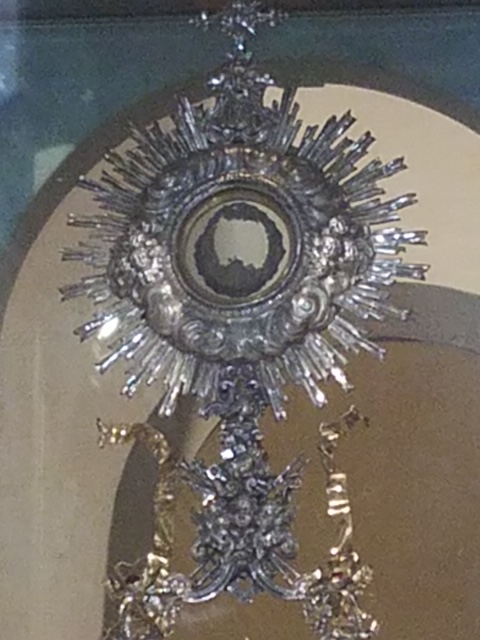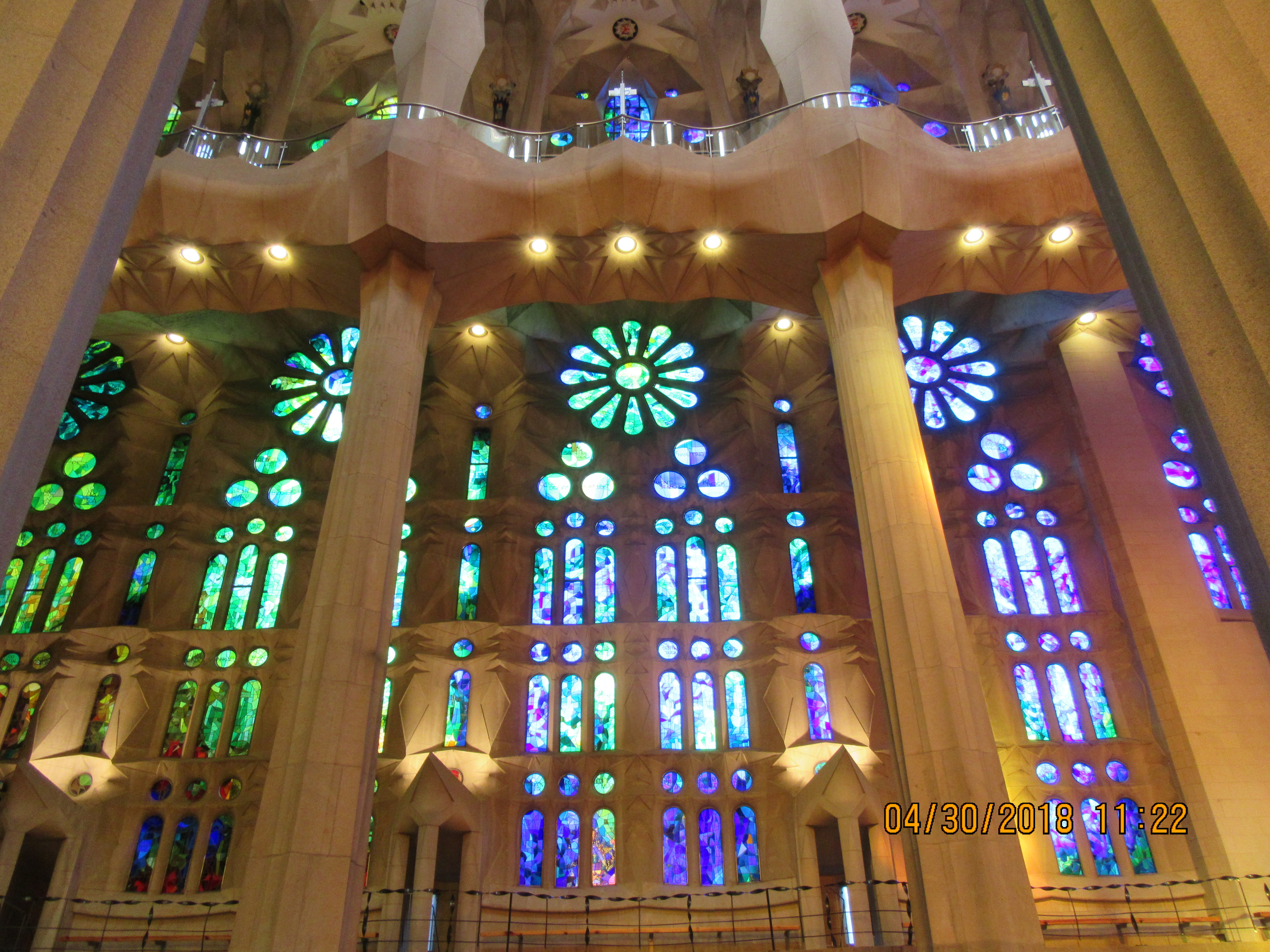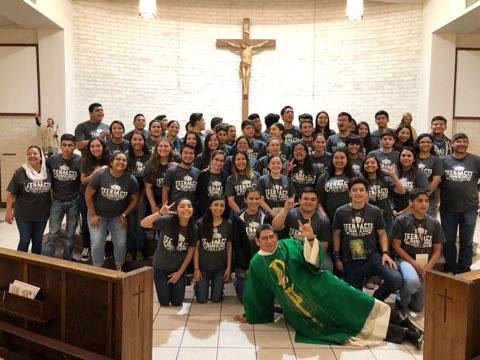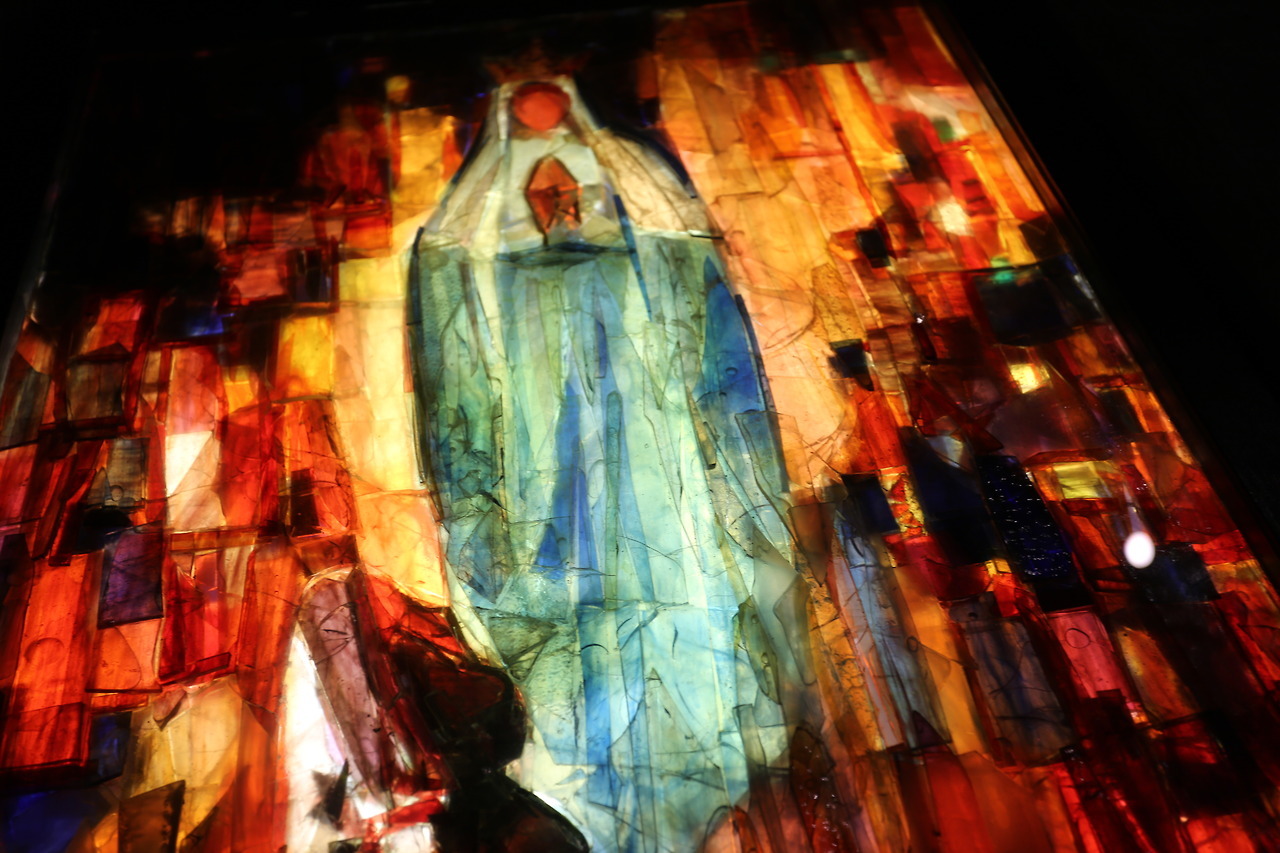Josh. 24:1-2a, 15-18b; Ps. 34:2-3, 16-21; Eph. 5:21-32; Jn. 6:60-69
Queenship of Mary celebrates a memorial in honor of our Blessed Mother Mary eight days after celebrating Mary’s Assumption into heaven. It is a continuation of her celebration into heaven as Queen of Heaven and our Queen. It recognizes her distinct place in heaven as the Mother of God, first human into heaven as body and soul in the resurrected life. Jesus’ resurrection was his humanity and divinity, second person of the Trinity but Mary represents our humanity into the gates of heaven.
The Queenship of Mary is a “Marian feast day of the Church created by Pope Pius XII in 1954” commemorating all the privileges bestowed upon Mary by God and all the graces received through her intercession and Mediation.” (www.franciscanmedia.org ) The Queenship of Mary culminates her journey of faith from her moment of conception as the Immaculate Conception, her visitation to Elizabeth who calls Mary “mother of my Lord”, her mysteries by the side of Jesus, her Assumption into heaven and her recognition by the early Church fathers’ reference to her as Queen especially in her prayer “Hail Holy Queen”.
We can look to the Queenship of Mary as the new Eve through Jesus redemptive work responding to the call to “be perfect as your heavenly Father is perfect”. This perfection is found in the image of Jesus love who first felt the embrace of a mother’s love as a child. Perfect divine love is embraced by perfect human love and all things are made new. What’s left is our call to perfection in the same image of love, a sacrificial love, a love of mercy and forgiveness, a love of charity and generosity, a love of a father and a mother and for a love as brother and sister. That love is what this world still needs to see. That love is what we are being offered today to “taste and see the goodness of the Lord.”
In the royal court of ancient times next to the King the seat was reserved for the mother of the King. When the disciples mother asks for her son’s to be at Jesus right and left side as any mother would want, Jesus lets her know that seat is predestined and who would it be that would receive this gift if not the Queen of Heaven and Earth who has the ear of Jesus and holds his heart reminding us to do as he says exercising her queenship. The royal court of Jesus is not a democracy and we don’t get a vote on which commandments we accept and which we discard. As Joshua spoke to “all the tribes of Israel” meaning all the people of God to make a choice. “If it does not please you to serve the LORD, decide today who you will serve…”
Joshua was speaking to the people of God, the chosen people and yet by their choice their actions were forsaking the LORD for other gods. Those gods were attributed to the Amorites whose legend holds they were “uncivilized nomadic raw-meat eating barbaric giants in the time of their ancestors who plundered and abused the people of God. They were feared and ancient writings describe them as “the former terrible giants, the Rephaim, gave way to the Amorites, an evil and sinful people whose wickedness surpasses that of any other, and whose life will be cut short on earth (the canonical Book of Jubilees (xxix. [9]11)” and to their reference to “their black art, their witchcraft and impure mysteries, by which they contaminated Israel in the time of the Judges (Syriac Apocalypse of Baruch (Haaretz.com). They were part of a cult that sacrificed “their living children by burning them in a fire worshiping their god Moloch. To keep this in context these were historical figures that Joshua was comparing his people to falling into the same corrupt immorality and to choose between serving the Lord or the “gods” of these Amorites seen as lowest level of humanity who his people were becoming like.
Can we hear the voice of Joshua today speaking to our people in like manner? Recently it was reported of a university who I will not mention by name but you can easily find the story on the web, who in this country is performing live abortions without “Digoxin” in order not to contaminate the aborted babies body parts, having them born alive, selling them in the market as prime specimens and as well as using those body parts for scientific experiments like implanting the babies’ hair onto rats. The story continues with more graphic details of barbaric behavior that a civilized society condones. Could there be any lower form of humanity? The story came to light under the Freedom of Information Act by someone we could say is the voice of Joshua or John the Baptist calling us to repent in our times.
The Lord is asking “decide today who will you serve”. The gods of these “giants” of today who control the culture of death with sinful behavior or the house of the Lord? If we respond in like manner to Joshua “As for me and my household, we will serve the LORD” then we can no longer ignore the sins of this world and it begins in the home. The importance we give to God, his church, and the teachings of his Word matter as a household to be one household under God. Husbands and wives are to be united as one in one faith under God passing on to their children the same faith, hope and love of God. The new age view that parents allow their children be free to explore their own sexuality, their own identity, their own faith views, and find their own gods is “Amoriteish”. To God all lives matter under his household and we carry a responsibility to each other.
In the teaching from Ephesians to be “subordinate to one another out of reverence for Christ” as one flesh we recognize the importance of the church to Christ. Many today try to separate their faith in God to their commitment to church. This teaching reminds us of the importance of “church” to God as one flesh. Why so important? The gospel reveals the “why” because it is in church where we come to receive him body, blood, soul, and divinity in the Eucharist. For this reason, priests are subordinate to their bishop and bishops to the Pope in order to remain as one in reverence to Christ. As husbands and wives are married and subordinate to each other the priesthood is married to the church. Regardless of the sins of the few from within the church there remains many more holy priests and the walls of the church will continue to stand guarded by Christ and the heavenly hosts.
To many “this saying is hard; who can accept it” is as much true today as it was when Jesus proclaimed it. By coincidence or not in John 6:66 we hear “As a result of this many of his disciples returned to their former way of life and no longer accompanied him”. The numerical sign of the antichrist is “666” and we can view the antichrist today in the “many” who turn away from Jesus’ teaching returning to their way of life to serve other gods. It is not difficult to fall into the antichrist role, be an “Amoriteish” world that is self-serving and becoming the giant monsters of promoting sin when we demand it to be our way, not God’s way.
“Do you also want to leave?” This is the question Jesus possess to us today and we pray that we too will see the light to answer “Master, to who shall we go? You have the words of eternal life”. We cannot separate Christ from the church or we will find ourselves to be the separated ones from his words that are “Spirit and life”. “Does this shock you?” says Jesus and bring us closer to him in the Eucharist and his church or do we turn away. This is what the Queenship of Mary is ultimately about, bringing us closer to her son in whatever state of life we find ourselves.
If we find ourselves in a state of mortal sin then Christ is there crucified in atonement for our sins and we come to him as Mary is at his feet. If it is as disciples going deeper into his word, Christ is there in Spirit to reveal himself as the will of God. If it is in receiving the Eucharist, Christ is there to offer us his body and blood for our transformation to be “granted him by my Father” says Jesus. If it is in the sacramental life of the church, Christ is there building up his kingdom as a force for good against the culture of death. And, if it is at the moment of death, Christ is there in his Ascension to receive us as sons and daughter of the most-high God that we may all be one as he is one with the Father and the Spirit and as he also joins to himself all called to be saints.
We are all called to be holy, perfect, and saints. Don’t miss the opportunity. Let not our hearts be hardened but come to him in humility to receive him, give praise and serve the greater good he has destined for us, each according to the gifts he pours into us.
Tags

















Recent Comments